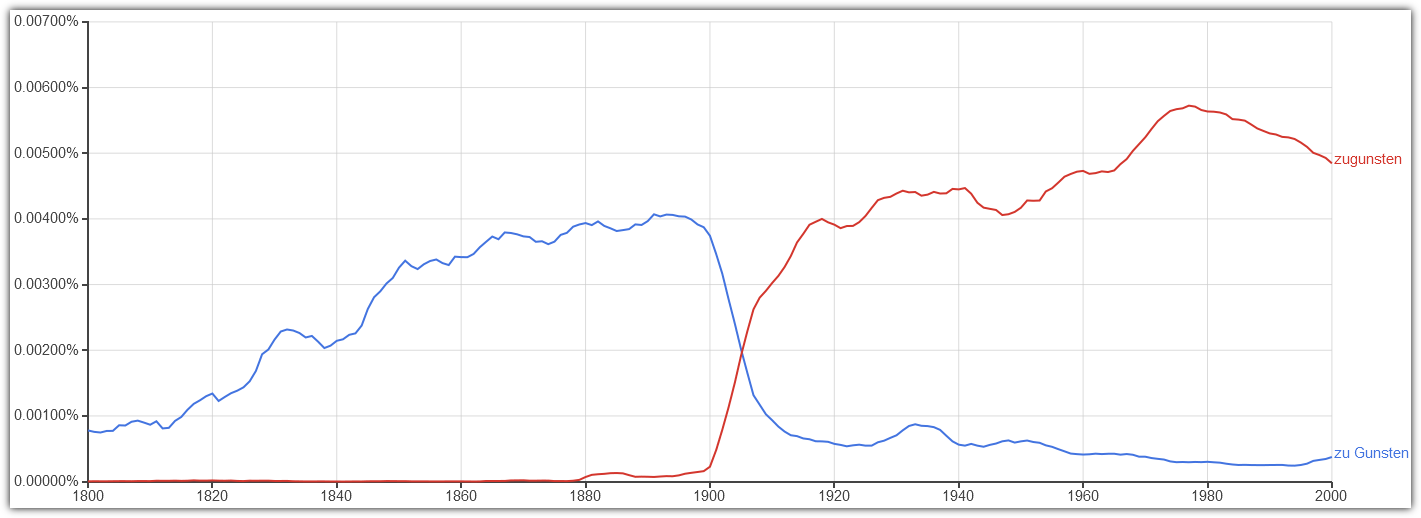In this question we learned that one origin of new prepositions are adverbs or fixed prepositional phrases. These prepositions go initially with genitive (and then perhaps mutate into dative).
When I told to my German teacher this point against the extinction of the genitive, she replied that there is a fixed number of prepositions in a language, to which I replied that "language evolves" but I couldn't reply properly due to my lack of knowledge on the history of the German language.
Arguably, we can say that zugunsten, zuliebe are originated by zu Gunsten, zu Liebe, respectively. (Actually it seems that not only prepositions are origined that way, e.g. demzufolge).
Question: When were the new prepositions accepted as such? Is somewhere the process of "becoming preposition" documented?


